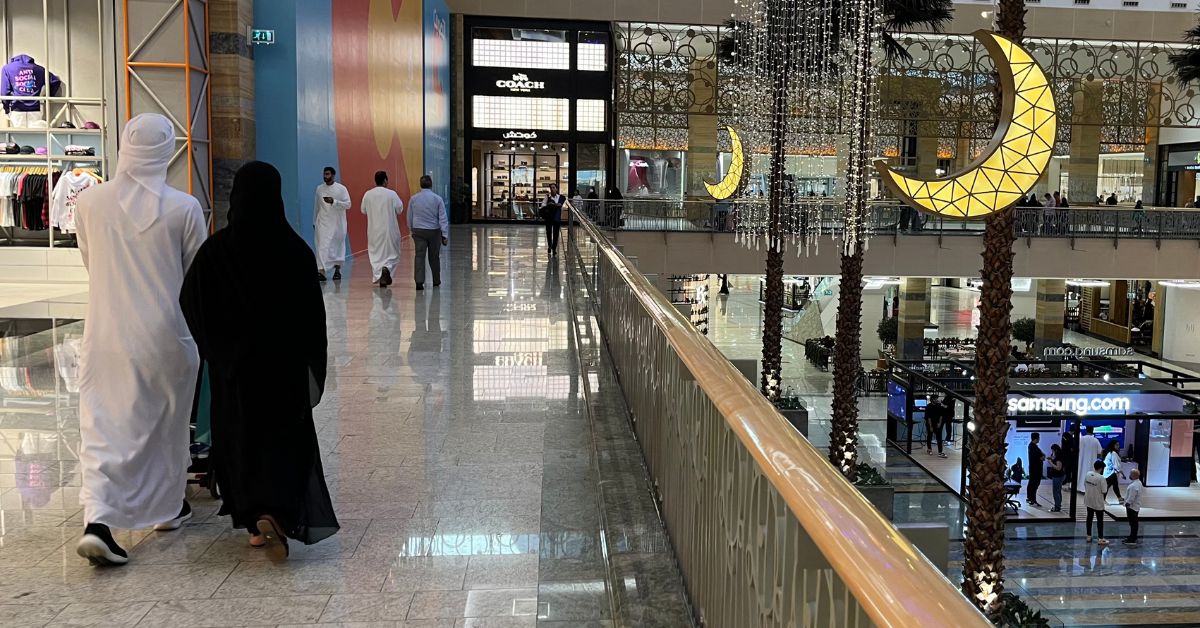DUBAI — As the holy month of Ramadan descends upon the region, retailers and suppliers encounter various challenges and opportunities. Ramadan, a time of fasting, reflection, and spiritual devotion, profoundly impacts the socio-economic landscape, significantly influencing consumer behaviors and supply chain dynamics.
In this period of cultural significance and religious observance, navigating complex logistical challenges becomes crucial for retailers and suppliers. They must manage fluctuating demand patterns and ensure seamless distribution channels during a time of increased consumption, testing the agility and resilience of supply chain operations.
“Demand increases this month due to several factors, including some people’s preference to receive items without leaving their homes, avoiding traffic, and adapting to changed working hours,” states Tarek Abi Yaghi, General Manager at Aramex. He anticipates a rise in shopping habits as people purchase items for the occasion, linking demand directly to logistics and the entire delivery process. This increase in demand pressures the network and planning, both crucial to operational execution.
Abi Yaghi notes that despite shorter working hours during Ramadan, client expectations remain high or even increase. “I believe that the shorter working hours and the unwillingness to be lenient and wait for a delivery strain expectations. And in a city like Dubai, where top-tier service is always expected, this presents a significant challenge during the holy month,” he explains to TRENDS.
At A Glance * Ramadan introduces unique challenges and opportunities for retailers and suppliers, affecting consumer behavior and supply chain dynamics. * Tarek Abi Yaghi of Aramex highlights the increased demand during Ramadan, driven by the convenience of home deliveries and altered work schedules. * Managing expectations with shortened working hours presents significant challenges in maintaining service quality. * The surge in shopping during Ramadan strains delivery process capacities, emphasizing the need for efficient logistics planning. * Adapting to Ramadan demands includes altering working hours for iftar and accommodating preferences for late-night deliveries. * Companies overpromising during Ramadan can lead to operational overreach, underlining the importance of accurate forecasting.
He highlights that logistics challenges on the ground relate to the flow of a shipment’s lifecycle, especially in mid or last-mile delivery. Capacity and load become major issues as many shop more, order more, and have higher expectations. Combining this with previous challenges puts a strain on delivery process capacity.
From procurement and inventory management to transportation and last-mile delivery, each link in the supply chain undergoes rigorous scrutiny and adaptation to meet the unique demands of Ramadan. Factors like altered shopping hours, increased demand for specific products, and the cultural importance of communal gatherings shape the logistical landscape, presenting both challenges and opportunities.
Abi Yaghi emphasizes that proper planning and forecasting are key to ensuring efficient distribution and delivery. “At Aramex, we take a scientific approach to planning and forecasting, which includes effective communication with our clients to align our projections with theirs, allowing for accurate planning according to demand fluctuations.”

“Secondly, internal planning mechanisms are crucial for operational efficiency. This includes optimizing workforce utilization and coordinating capacities across different divisions. By synchronizing capacities, we reduce disruptions caused by surges in specific areas. Additionally, we adjust working hours to unique circumstances, like pausing deliveries during iftar. During Ramadan, we’ve noticed a shift in client preferences towards accepting late-night deliveries, with shipments after 10:00 p.m. becoming more common,” he pointed out.
He also highlighted a concerning trend where some companies, unfortunately, overpromise to clients during the holy month. “This often results from a lack of accurate forecasting and planning, leading to commitments beyond their operational capabilities. Remarkably, we sometimes receive requests from such companies asking for our help to manage volumes they can’t handle,” he explained.
“Our strategy at Aramex is built on transparency and integrity in our dealings with clients. Keeping a clear understanding of our capabilities ensures our offerings match what we can consistently deliver. This dedication to honesty and reliability has been fundamental to our success in the region,” Abi Yaghi noted, adding that clients value reliability in their business partnerships, especially during challenging times.
“This commitment to integrity and reliability is why Aramex maintains a leading position in the region. Viewing the holy month of Ramadan as an opportunity rather than a challenge, we approach this period with enthusiasm, aiming to surpass our client’s expectations by consistently delivering the high-quality service they depend on,” he said.








